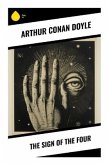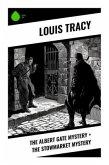In 'The Adventures of Sherlock Holmes,' Arthur Conan Doyle introduces readers to the quintessential detective, Sherlock Holmes, through a series of twelve riveting short stories. Written in a clear, engaging prose that combines elements of mystery, suspense, and deduction, Doyle's work situates itself within the broader context of late 19th-century literature, amidst the burgeoning interest in criminal psychology and forensic science. Each story unfolds in a meticulously crafted world where Holmes's astute observations and logical reasoning unravel complex cases, thereby establishing a narrative style that influences detective fiction for generations to come. Arthur Conan Doyle was a physician with a keen interest in the sciences, an influence that permeates his writing. His creation of Sherlock Holmes was inspired in part by his medical mentor, Dr. Joseph Bell, who was renowned for his ability to deduce vast amounts of information from minimal observations. Doyle's background inmedicine and his fascination with the human mind feed into the novel's suspenseful narratives, making Holmes not only a character but a symbol of reason amid an era of rapid societal change. This collection is a must-read for anyone interested in the genre of detective fiction or the psychology of crime. Its appeal lies not only in the cleverness of the plots but also in the rich characterizations and the moral complexities presented. Readers will find themselves captivated by Holmes's genius and eager to deduce alongside him, making 'The Adventures of Sherlock Holmes' an essential addition to any literary collection.
Bitte wählen Sie Ihr Anliegen aus.
Rechnungen
Retourenschein anfordern
Bestellstatus
Storno








